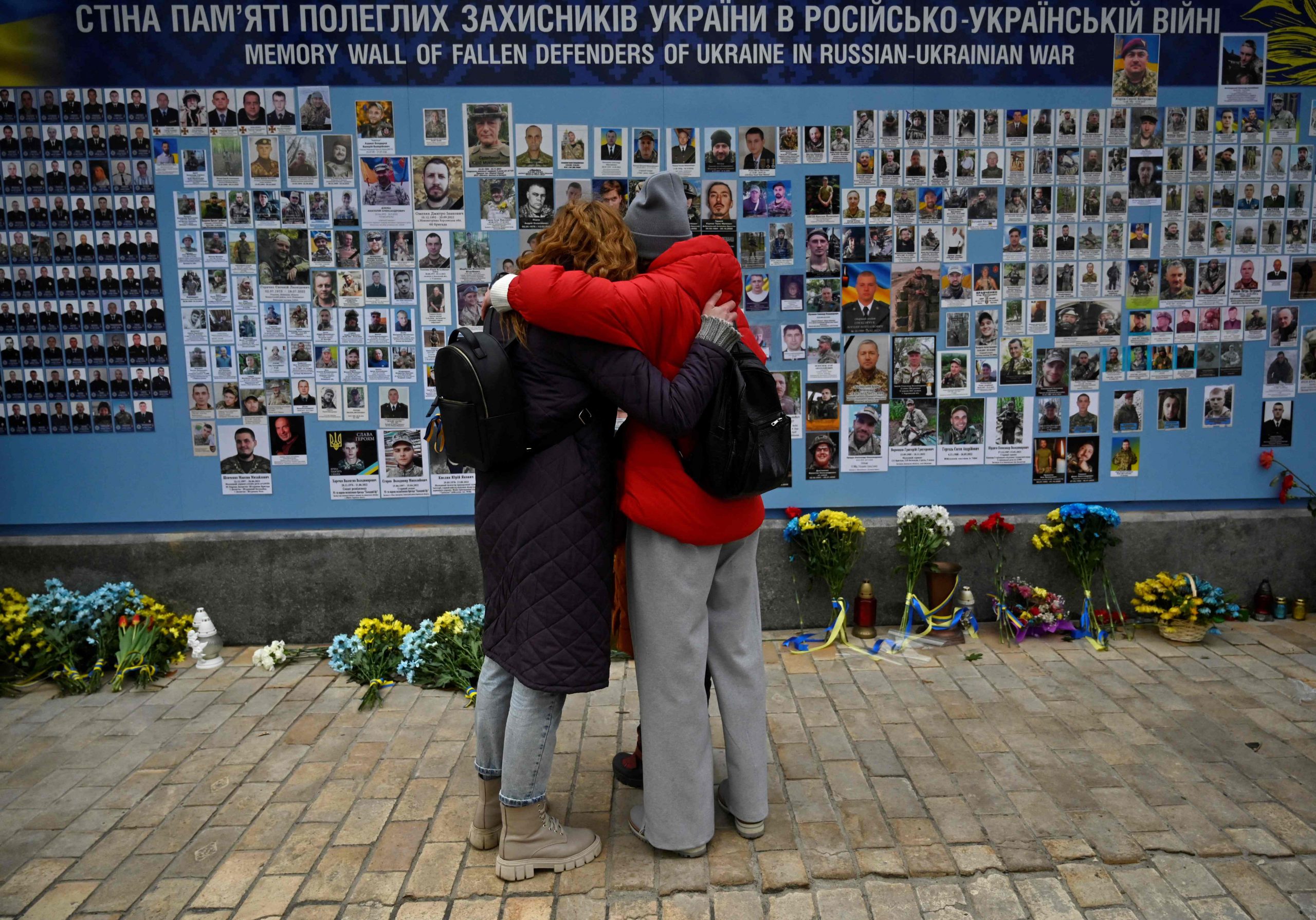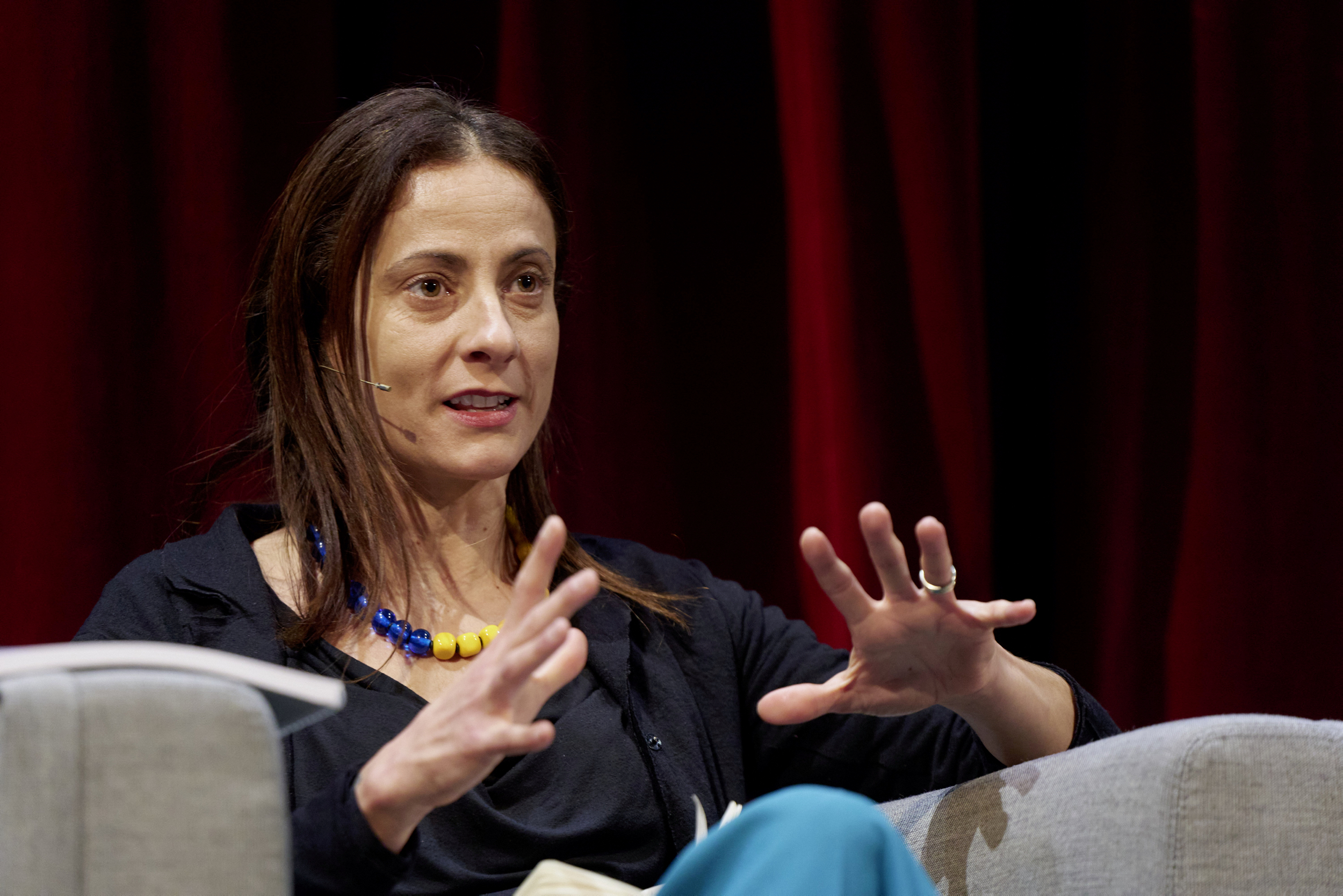Italian political scientist Nathalie Tocci believes the United States will ensure Russia loses the war – but only the EU can ensure Ukraine wins it.
Ukraine’s future will unfold in partnership with the European Union. That’s the opinion of Nathalie Tocci, director of the Istituto Affari Internazionali (IAI) in Rome. She says Ukraine needs to work with Europe to prevent Russia from launching any new acts of aggression in the future. A peace treaty is a long way off, and we are heading for “a protracted period of non-peace,” she says. Tocci, a political scientist who is also currently a Europe’s Futures Fellow at the Institute for Human Sciences (IWM) in Vienna.
A little over a year ago, few people in Europe really believed Russia was about to invade Ukraine. The warnings from US Secretary of State Antony Blinken weren’t taken seriously enough. How could that be? It’s not as if Putin’s attack came out of the blue.
I think there’s a big difference between the secret services in the United States and in Europe. There was a big failure, but it was mainly from continental Europe; the UK was largely in agreement with the US. But overall, the intelligence services were very aware of the situation. The US in particular knew the situation was likely to end in war – and its diplomats did everything they could to prevent it from happening.
The expectation was that this would be a war of the kind we saw in Georgia in 2008 – but on steroids. No large-scale invasion, just more of the same. Like 2014 in Crimea and Donbas. But this time with the added risk of it igniting a much larger conflict. Putin was expected to overstep the lines of contact in the direction of Mariupol, and that could have triggered a large-scale war in Donbas.
I think it would be unfair to say the experts didn’t expect something to happen. It just developed in a very different way to the wars we’ve seen in the past.
Did anyone back then think Ukraine would defend itself so forcefully?
No, and that also explains the delay in supplying weapons to Ukraine. Here in Europe, we just assumed they’d lose. So what was the point in sending weapons that would just fall into Russian hands? But just after the war broke out, Volodymyr Zelensky made a defining statement in what was a very human, very psychologically important moment. It’s probably one of the most significant sentences uttered in the 21st century. He said: “I need ammunition, not a ride.” He meant he was staying with the Ukrainian people and had no intention of fleeing. Suddenly, the whole nation was behind him. That was a very early milestone.
Yes, that was quite something…
From a cognitive psychology perspective, it was very powerful. And apart from that, the Ukrainian army has proved that it’s logistically superior, has a better command structure, and can handle its weapons better. And it’s shown the world that it can deploy Western weapons very effectively against the Russian aggressors. This has progressively increased confidence in Ukraine’s ability to fight, and even to win the war.
As for the intelligence services, they were interestingly inconsistent: They had almost unbelievably accurate knowledge of what would happen in the early stages of the war, practically minute by minute. But then they failed entirely in their evaluation of Ukrainian and Russian subsequent military capacities.
So we were all caught off guard? Are you saying only the Ukrainians knew what they were capable of? Or were even they in the dark about that?
Yes, perhaps they even surprised themselves. Sometimes you don’t see these things until you’re in an extreme situation. You can’t prepare yourself for a scenario like this. You only know what you’re capable of once you’re in it.
Kyiv recently started talking openly about “winning” the war. Is that realistic?
Yes, they really believe they can. Is it realistic? We know the Russians won’t be able to do much more than what they’re already doing – if you exclude the nuclear option. I think we don’t yet know what the Ukrainians will do with the weapons we’re currently sending. Maybe they’ll only be able to reclaim a little bit of the south. Maybe they’ll get as far as Crimea and liberate it. Just think of how much they’ve surprised us already. As Ukraine’s Western allies, we should give them a chance and let them do whatever they can. For all of us, the priority is to prevent any repeat of this invasion. If Russia isn’t defeated, it will just keep trying – even after all this death and destruction. The Ukrainians want to make sure it can’t ever happen again.
So the end of the war isn’t in sight?
Controlling territory is important. But it’s not the only way to define victory or defeat. At this year’s Munich Security Conference, Ukraine’s foreign minister Dmytro Kuleba gave a very moving answer when asked how he would define victory. He simply said: Ukraine will have won when the Russian leader, whoever that is, comes to Kyiv and kneels at the monument to our fallen soldiers, to the victims of this war, and asks for forgiveness. We must always remember that there’s a human dimension to this war. It’s not exclusively about territorial and military concerns.

The Memory Wall of Fallen Defenders of Ukraine in the Russian-Ukrainian War in the center of Kyiv. Photo: Sergei Chuzavkov / AFP / picturedesk.com
In a recent article, you wrote: “While the US can ensure that Russia loses this war, only the EU can ensure Ukraine wins it.” What did you mean by that?
Russia’s military defeat, which we just talked about, is one thing. Let’s assume Ukraine does liberate most or even all of its territory. Then we’d have a hyper-militarised state, a broken economy, and deep-rooted insecurity because Russia won’t have disappeared entirely. This raises the European question: We’re basically talking about full EU membership and perhaps even NATO membership. This war will show that Europe no longer has any buffer states, no grey zones where you can be just a bit democratic but also corrupt and deeply unstable. You’re either on one side or the other side. For Ukraine, that means choosing the European side.
A very odd kind of peace movement has emerged in Europe recently. It’s being nurtured by both the far left and the far right. What’s your take on it?
They’re eroding the meaning of “peace movement”. What’s driving these politics? Various things. Of course there are the “Putinists” who want Russia to win the war. For them, peace means Russia emerging victorious. This view could be rooted in anti-Americanism, for instance, or in Putin’s appeal as a strong man who they think should be leader. In any case, it’s a discourse centred on disinformation. And then there are those who want to feel as comfortable as they did before, far away from any frontline. They’re sick of the war. There are also elements of indifference, or at least a hint of it. And that’s not a very edifying aspect of the human character.
Arguments like these ultimately serve Putin’s interests…
Absolutely. Russian propaganda is probably one of the main driving forces for these narratives. You always find an element of disinformation, of propaganda, in them.
Apropos propaganda: We’re witnessing a very professional level of Russian propaganda, but the West doesn’t seem to have any adequate response to it.
We should be doing the same in the digital age as we did during the Cold War. Radio Free Europe was a democratic form of counterpropaganda. But we stopped because we thought there was no need for it anymore. We need to rethink it all, start investing in things like that again. The idea that everyone dreams about living in a Western-style democracy is just post-Cold War hubris.

Nathalie Tocci, here at the discussion “Debating Europe” at the Burgtheater Vienna on 5 March 2023: When Zelensky said “I need ammunition, not a ride,” he’d uttered probably one of the most significant sentences of the 21st century. Photo: Robert Newald / Der Standard
Where do you think Ukraine and Europe will be in a year? When will this war end? And what will we need to do to make that happen?
I think it’s unlikely Ukraine will win the war and sign a peace deal with Russia in the near future. A much more realistic scenario is one where we have a protracted period of “non-peace” with the possibility of negotiations. Imagine Ukraine liberates all or most of the occupied regions. At that stage, it could be ready to negotiate. And I think Russia would also be ready. So I think we’ll see a scenario where we still have to give Ukraine a lot of military aid – at least for as long as Putin remains in power.
How long could that be?
A day? A year? Six, seven years? I really don’t know. This period of non-peace will persist for as long as Putin is in power.
Original in German. First published on 2 March 2023 in derstandard.at.
Translated into English by Jen Metcalf.
This text is protected by copyright: © Gianluca Wallisch / Der Standard. If you are interested in republication, please contact the editorial team. Copyright information on pictures, graphics and videos are noted directly at the illustrations or on top of the article. Cover picture: On the eve of 23 February 2023, on the occasion of the first anniversary of Russia’s invasion of Ukraine, the fallen Ukrainian soldiers were commemorated with a “Ray of Memory” at the Lychakiv Cemetery in Lviv. Photo: Yuriy Dyachyshyn / AFP / picturedesk.com
Debating Europe
This series of public morning debates brings leading politicians, scientists and intellectuals on to the stage of Vienna’s Burgtheater to discuss topical issues of political and social relevance.
This long-standing event is a collaborative production of the Institute for Human Sciences (IWM), Burgtheater, ERSTE Foundation and Austrian daily Der Standard.
